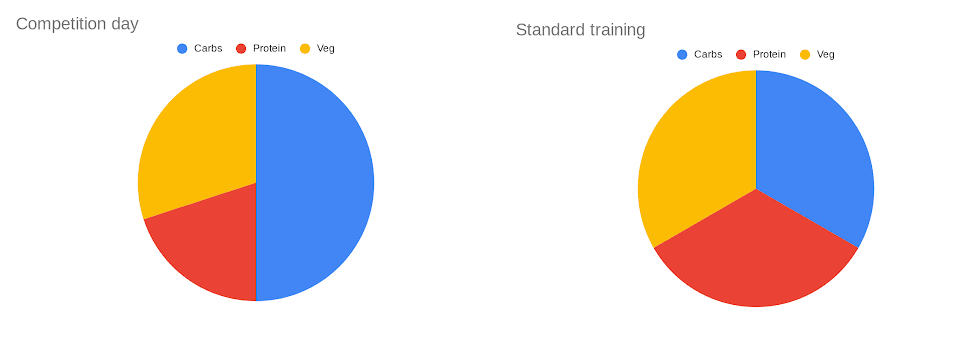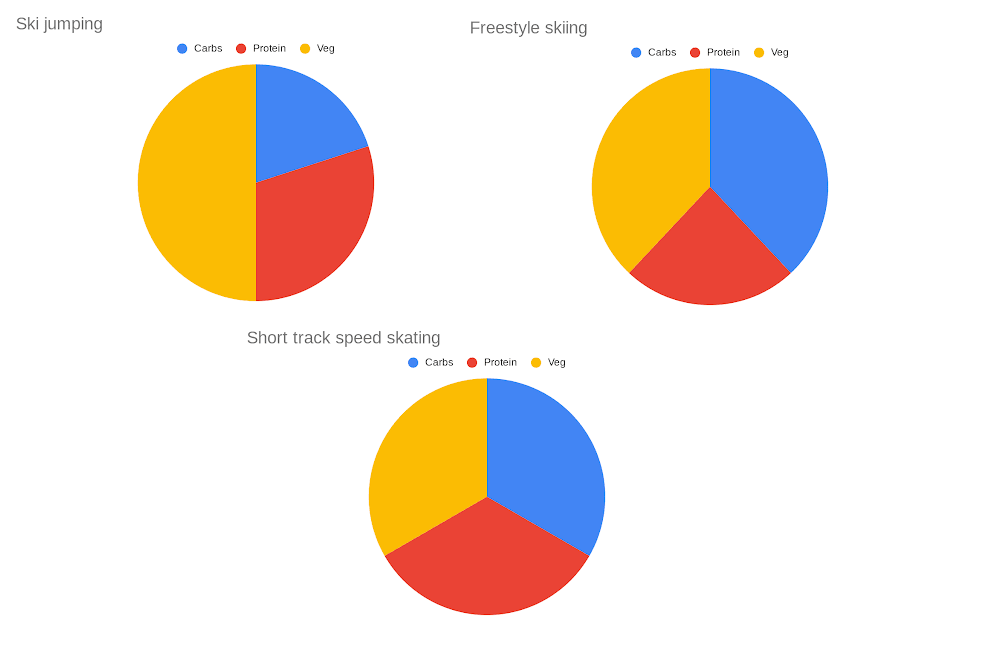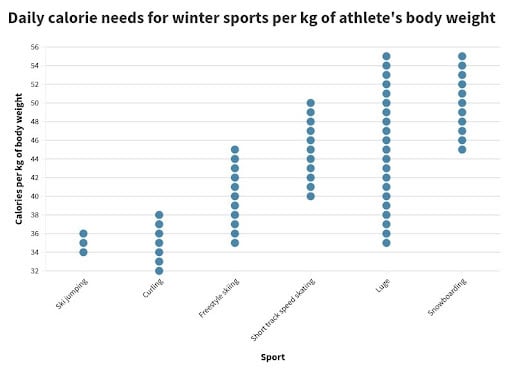Training for the Winter Olympics takes place not only in the arena, but in the kitchen too!
We spoke to nutritionists working with professional Canadian winter sport athletes to find out exactly what goes into a winning healthy eating plan.
From snowboarding to ski jumping, there is no one-size-fits-all meal plan for these athletes. Read to find out what these nutrition experts advise for each winter sport, and you might be surprised.
From snowboarding to ski jumping, there is no one-size-fits-all meal plan for these athletes. Read to find out what these nutrition experts advise for each winter sport, and you might be surprised.

Athletes' diet changes for competition day
Competition day can affect athletes' diet, too. Here is how Martin Fréchette, Sport Dietitian for short track speed skating at Speed Skating Canada, advises his athletes to fill their plates for standard training days versus competition days. Why the difference? Protein is difficult to digest and the athletes are in need of a lot of energy, so a higher carb ratio is better.
Food is fuel for winter olympians. Depending on the sport, athletes require differing combinations of carbohydrates, proteins and vegetables - the three main nutritional components of a balanced, healthy diet.

Why do athletes need a balanced diet?
Depending on the winter sport in question, athletes need to tailor their healthy eating plan to a specific carbohydrate or protein intake which will support their training. Whilst the cardiovascular demands of freestyle skiing may require more carbs to burn as fuel, luge competitors will be recommended fewer carbohydrates in order to maintain a quick and light start to their race.What about those of us not competing in the winter olympics? By eating a balanced diet made up of the five major food groups (including grains and fruits alongside sources of protein), we can obtain the nutrients needed for a healthy lifestyle without going over our recommended calorie intake.
Chefs Plate Balanced Recipes
Balanced recipes are simple, good-for-you and most importantly, deliciously satisfying with every bite! Each serving from our balanced recipe range has at least 30 g of protein, less than 10 g of saturated fat and less than 75 g of carbs.
Keep warm in February whilst watching Canada at the Winter Olympics with these three perfectly balanced meals.
Keep warm in February whilst watching Canada at the Winter Olympics with these three perfectly balanced meals.
